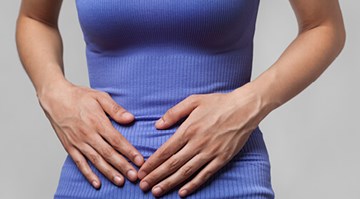Endometriosis is on the Centers for Disease Control and Prevention’s (CDC) list of common reproductive health concerns for women, but what is it?
According to the National Library of Medicine’s (NLM) MedlinePlus, endometriosis (or endo) causes tissue that’s similar to the tissue lining a woman’s uterus or womb to grow in other places in her body. You can find more at medlineplus.gov/endometriosis.html. Here are some basic facts about endometriosis.
Causes & Risk Factors
The cause of endometriosis is unknown, but there are ways to know if you’re at a higher or lower risk for the condition. You may be at a higher risk if:
- Women in your family have a history of having endometriosis.
- You got your first period before age 11.
- Your monthly cycles are shorter than 27 days.
- Your periods tend to be heavy and last more than seven days.
You may be at a lower risk for endometriosis if:
- You’ve been pregnant before.
- You breastfeed your babies.
- Your periods started later in your preteen years.
Symptoms
Pelvic pain and infertility are the main symptoms of endometriosis, but there are other possible symptoms, including:
- Painful period cramps, which worsen over time
- Painful bowel movements or urination during your period
- Pain during or after sex
- Intestinal or lower abdominal pain
- Fatigue or lack of energy
You can find the full list of symptoms at medlineplus.gov/endometriosis.html.
Diagnosis and Treatment
If you think you may have or be at an increased risk for endometriosis, discuss your symptoms and medical history with your doctor. A pelvic exam and imaging tests can be used to obtain more information. However, surgery is the only way to know for sure if you have endometriosis. Your doctor will most likely perform a laparoscopy (surgery where a thin tube with a camera and light is inserted through a small cut in the skin) to observe tissue patches inside your body. While there’s no cure for endometriosis, there are ways to treat the symptoms, including:
- Pain relievers
- Hormone therapy
- Surgical treatment
Whether this is your first time hearing about endometriosis or you’ve grown up with a mom or sister who had it, it can be beneficial to educate yourself and the other women in your life about the condition. It can affect different aspects of your reproductive health, including your period and your fertility.
To learn more about other common reproductive health issues for women, visit cdc.gov/reproductivehealth/womensrh.






